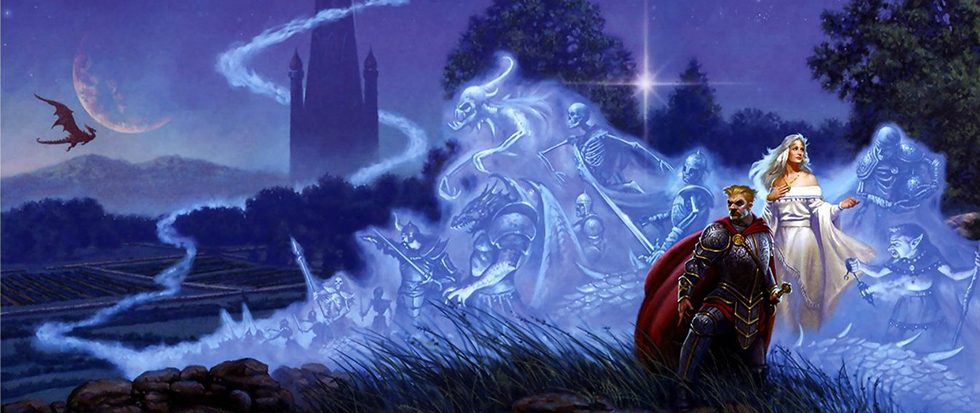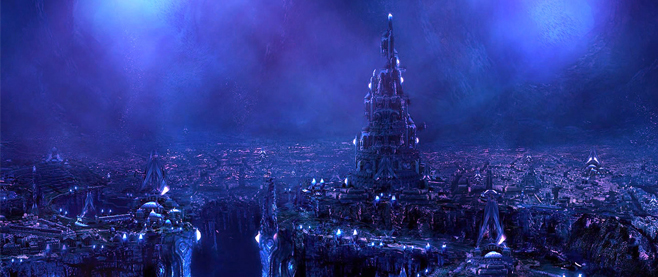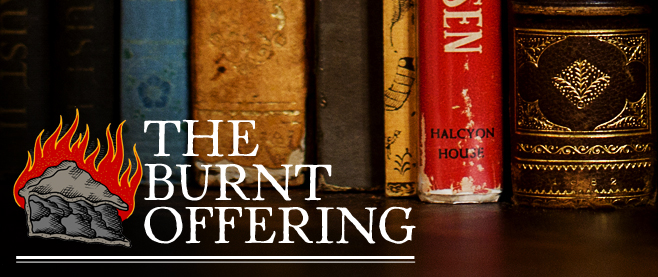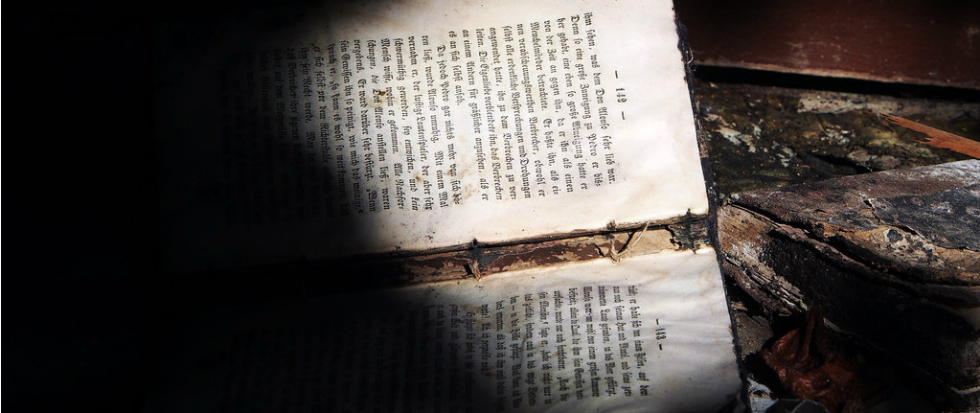
Polishing Up the Ol’ Dragonlance
Finishing a book, or any media with a lot of characters I’ve come to cherish, really winds me up. I know some people who are so reluctant to leave these worlds that they won’t come to the conclusion of almost anything. My impulses don’t take me that far, but I do my best to make sure I don’t blast through any conclusions before bed, because my heart will keep me awake for far too long, pining for non-existent friends.
One of my earliest instances of getting swept up came as I concluded the first Dragonlance trilogy, Chronicles. The entire series is a chart-topping million-seller, perhaps because it ticks all the classic Dungeons & Dragons highlights. It’s not unlike Forgotten Realms or many of the other fantasy worlds and settings, pitting races against each other and the gods with a lot of monsters thrown into the mix. Dragonlance in particular is guilty of maybe too much going on in the pot, with sub-sub-sub-races of all sorts and a magnifying glass that occasionally hovers over intractable politics a hair too long. But these lovingly overwrought elements set the stage for a number of compelling, fallible characters, from scruffy reluctant ranger Tanis Half-Elven through the charmingly troublesome kender Tasslehoff Burrfoot.
There’s plenty of Dragonlance fiction to go around, so one need not truly say goodbye. But the core trilogy was a stone-cold classic of the genre, drawing a wider world that the main characters were engaged in as more than mere adventures, but people who lived in these lands and came together to face a foe larger than their political, social, and racial divisions. The second series that goes back in time and focuses on the twins Raistlin and Caramon Majere is probably the best written of all the books, pulling these same threads and willing to unwind them in whatever natural, if heartrending, ways necessary to stay true to everyone involved.
As one does, I fell off Dragonlance as I got older, started college. My interests diverged, and the comings and goings of the crew were no longer at the forefront of my mind. Which is how I missed the (currently) conclusive Dragonlance arc, The War of Souls. A good friend of mine, while once discussing the literature of our youth, mentioned this as one of his favorites that I would need to consume without delay. But delay I did, until just recently, when I absorbed the three novels faster than I have read anything since the original three.
There’s plenty large and small to break down in a trilogy like this, a winding epic that crosses dimensions, presents the final tragic and majestic moments of old friends. But I’d rather note one—notion that carries through these books that struck me as rooted in common ground to our sometimes drab, mundane world. Of the many tales outlined in The War of Souls, there are a few steeped in an examination of addiction—particularly, addiction to the power of spellcasting, addiction to an unrequited love, and an addiction to a one-sided and abusive faith. I’m not willing to claim that this trilogy goes farther than the many other fantasy books that explore contemporary themes, that it gets dark and dirty despite, or maybe because of, the trappings of genre. But The War of Souls continues the Dragonlance series’ penchant for a willingness to let its characters fail—to be broken down completely while chasing meaningless power, given the chance for redemption, and convincing the reader when they stand or fall.
One of the main characters, Mina, is an addict of her faith—lashed to the new “One God” when once there were many. Mina is given gifts of foresight and healing and seeks to prepare the world for her god’s arrival on the scene. But it’s an abusive relationship, that many of her soldiers come to recognize as the story moves, though they are unable to break Mina’s chains for her. As in many such relationships, those on the outside can only support as best they can, while those twisted into a kind of divine codependency must find the resolve to cut those toxic ties on their own.
Fantasy at large can be very adept at analyzing the relationships between people and higher powers. The books of Margaret Weis and Laura and Tracy Hickman, as well as many others, are perhaps most treasured to me because they were the first to weld high and low fantasy, clashing the influence of the gods against the free will of mortals. But The War of Souls has rekindled my own love of expansive worlds populated with broken, struggling heroes, villains, and top-knotted time-travelling gallivanters.





